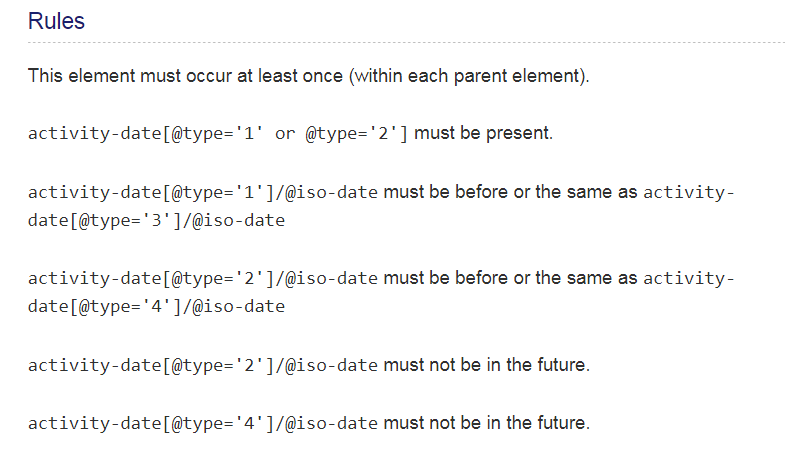Not the answer you are looking for, but if we are going to have rulesets, then I am even less clear that that we need an ‘activity-status’ field given that it can be imputed from the start/end dates and the current date.
I think an issue is that the process/standard was designed for publishers who regularly re-publish and so the status gets updated when the start-date is passed, but as in the Belgian example (I guess) there are lots of publishers doing it irregularly - removing and instead imputing the activity-status would make it a lot easier for them. Of course it doesn’t solve the issue of a project that doesn’t actually start by the start date, but nor does the current situation.
RE the actual questions, my take is:
- Yes, you want to be able to predict when the project will end - and I often end up using it to estimate the upcoming disbursements ((activity value - disbursements to date) / remaining years) where the forward spending data is not provided.
- Yes, because it is often helpful to know when a project is due to be active / be spending.
As above, if the ruleset enforced forward spending data, then this would change - you wouldn’t need project dates, but could impute them from the spending i.e. date of first transaction = start date, date of last projected transation = end date.
I think my thinking here, is that in the absence of a ruleset that works in all cases, or is enforced, then the more data the better to try and figure out what is happening, despite the business-logic flaws that this involves.


